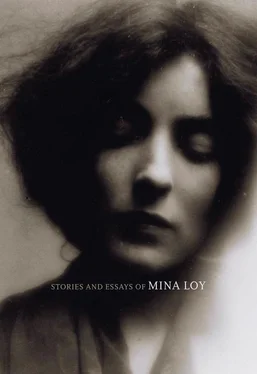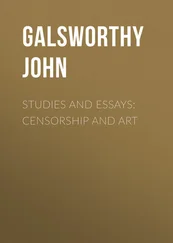Mina Loy - Stories and Essays of Mina Loy
Здесь есть возможность читать онлайн «Mina Loy - Stories and Essays of Mina Loy» весь текст электронной книги совершенно бесплатно (целиком полную версию без сокращений). В некоторых случаях можно слушать аудио, скачать через торрент в формате fb2 и присутствует краткое содержание. Год выпуска: 2011, Издательство: Dalkey Archive Press, Жанр: Современная проза, на английском языке. Описание произведения, (предисловие) а так же отзывы посетителей доступны на портале библиотеки ЛибКат.
- Название:Stories and Essays of Mina Loy
- Автор:
- Издательство:Dalkey Archive Press
- Жанр:
- Год:2011
- ISBN:нет данных
- Рейтинг книги:3 / 5. Голосов: 1
-
Избранное:Добавить в избранное
- Отзывы:
-
Ваша оценка:
- 60
- 1
- 2
- 3
- 4
- 5
Stories and Essays of Mina Loy: краткое содержание, описание и аннотация
Предлагаем к чтению аннотацию, описание, краткое содержание или предисловие (зависит от того, что написал сам автор книги «Stories and Essays of Mina Loy»). Если вы не нашли необходимую информацию о книге — напишите в комментариях, мы постараемся отыскать её.
Stories and Essays of Mina Loy
Stories and Essays of Mina Loy — читать онлайн бесплатно полную книгу (весь текст) целиком
Ниже представлен текст книги, разбитый по страницам. Система сохранения места последней прочитанной страницы, позволяет с удобством читать онлайн бесплатно книгу «Stories and Essays of Mina Loy», без необходимости каждый раз заново искать на чём Вы остановились. Поставьте закладку, и сможете в любой момент перейти на страницу, на которой закончили чтение.
Интервал:
Закладка:
– — only less boisterous was the aversion of two British society women circa 1912. In both cases these women adored their handsome and distinguished husbands.
A strange gamble — — Eros. At this same time it was reported to me, that among the (I gathered otherwise rather miserably situated Italians living in the Marremma the perfect consummation of Eros was almost 100 per cent.
At the very same time — [Lady X] An english woman on the morn of her honeymoon enquired of her husband Lord X,
“Does everybody experience such divine pleasure when they marry?” “Everybody” he answered. “Well all I can say is, it’s much too good for the common people.”
On a separate, single sheet of paper:
Havelock Ellis told me that, in England “women were suspicious of marriage (2) they asked what their moth- ers had got out of marriage — (1) and where their moth- ers had put up with it in silence — what they got out of it” said Ellis, “was nothing.” 90 per cent of the women in England found no pleasure in marriage to offset the pain of childbirth, “and when I put it at ninety per cent” he assured me “I’m putting it low.” We were getting along so well when apropos of “what” I cannot remember I alluded to an article [ beneath “an article” reads “a statement”] I had read — on atomic theory [that] there is enough atomic energy in one’s little finger — that if re- leased could blow up the whole of the Boulevard Montpar- nasse. The clear blue “youthful” eyes of Havelock hard- ened “You’re mad !” he hissed and spoke to me no more—
HISTORY OF RELIGION AND EROS
(6:159)
There are two folders of handwritten notes entitled “History of Religion and Eros”; one contains the twenty-page-long, typed essay included here. The manuscript has very occasional amendments in Loy’s hand, and the footnotes are Loy’s own. The final footnote refers to Sándor Radó (1890–1972), an influential psychoanalyist who moved from his native Hungary to the United States in the thirties.
A statement that appears midway through “History of Reglion and Eros,” namely “MAN IS A COVERED-ENTRANCE TO INFINITY,” echoes a line from Loy’s poem “O Hell,” which was first published in Contact in 1920, and reads: “Our person is a covered entrance to infinity / Choked with the tatters of tradition” ( Lost LB 71). The essay also explores many of the same themes as “Mi & Lo,” Loy’s philosophical dialogue believed to have been written in the thirties. Burke dates “History” as a product of Loy’s years in New York’s Bowery District, 1948–1953 ( BM 422–23).
PAGE 237
“i.e., enjoyment of surprising” reads “ enjoyment of surprising”; “i.e.” is drawn from a handwritten draft — ed.
PAGE 238
“these systems:” reads “these systems”— ed.
“The Asiatic mystic-scientist” was “The Asiatic-mystic-scientist”
PAGE 240
“that increments” reads “that increment”— ed.
“it aerates to” reads “it aerates? to”— ed.
PAGE 241
“this etheric” was “this ethenic”
PAGE 242
“a fine line” was “a five line”
“through increasing” reads “though increasing”— ed.
PAGE 243
“our impossible” was “the impossible”
“ the POSSIBLE” was “the POSSIBLE”
“impartation” was “importation”
“attraction: a gravitation” reads “attractio a gravitation”— ed.
PAGE 244
“with it, when” reads “with if, when”— ed.
PAGE 245
“Exercisers” was “exercises”
PAGE 246
“phenomena inducted from the invisible” was “phenomena in in- ducted from invisible”
PAGE 247
“his destiny is to fare onward” reads “his destiny is to go onward”— on the back of page 9 of this manuscript, Loy has written that on page 13, where this phrase occurs, “fare” should be sub- stituted for “go”— ed .
After “ ‘ unknown ’ ” in typescript, about four fifths of the remaining page is left blank— ed .
PAGE 248
“our desire, not of our own contriving, is from” was “our desires, not of our own contriving, are from” and reads, “our desire, not of our own contriving, are from”— ed .
“vibrational coidentity” was “vibrational co-identify”
PAGE 249
“ ‘man of electronic vitality’ ” was “ ‘man of electric vitality’ ”
In the margin next to “Between the brain. . our instincts” Loy writes in large hand: “?)”— ed .
After “our instincts” about two thirds of the remaining page is left blank— ed .
PAGE 250
“humane morality” was “humanie morality”
“intimate doings” was “ultimate doings”
“IT HAS BEEN THE PRETENSE OF CRUELTY TO ENFORCE MORALITY” was “CRUELTY ENFORCED MORALITY”
PAGE 251
“incomprehension through our spiritual” was “comprehension (through) our spiritual”—a large, pencilled question mark exists in the margin next to these changes— ed .
Next to “CONFUSION OF SATAN WITH EROS” Loy writes “or Substitution of Satan for Eros”— ed .
“channels of discard discharge coursing” was “channels of discord coursing”
“challenging our” was “challenging ours”
“to purity (Purity — consciousness. . life) to ignore” reads “to purity to ignore (Purity — consciousness. . life)”— ed .
“extensible maze” was “extensible able-maze”
PAGE 252
In footnote, “toward” was “to word”
THE LIBRARY OF THE SPHINX
(7:190)
“The Library of the Sphinx.” brings together five of Loy’s abiding preoccupations: modernist literature, psychology, sexuality, the asterisk, and lastly, the claim made in Oscar Wilde’s The Picture of Dorian Gray that women are “Sphinxes without secrets.” The latter two of these interests are specifically discussed in the introduction to this volume. Loy’s “Lady Asterisk.” and “Havelock Ellis” share direct points of reference with “The Library of the Sphinx.”
Loy makes many casual allusions to modernist figures and works of literature in this essay, including Joyce, Eliot, Aldous Huxley, and D. H. Lawrence, whose Sons and Lovers (1913) and Women in Love (1920) receive special mention. Less familiar references involve the sexologist Havelock Ellis (see editorial notes for Loy’s essay of that name); Irish-born editor Frank Harris, author of the multi-volume, scandal-making autobiography, My Life and Loves (1922–27); Italian author Gabriele D’Annunzio (1863–1938) and his novel Il fuoco ( The Flame of Life , 1900); American writer Evelyn Scott (1893–1963) and her first novel The Narrow House (1921); and lastly, anarchist activist Emma Goldman (1869–1940).
Although she observes that she is working from imperfect memory at one juncture in this text, Loy recalls Joyce better than Eliot: in the “Penelope” episode of Ulysses , Molly Bloom describes how her husband has kissed and ejaculated upon her backside, and these practices may be what Loy refers to with her paraphrase “if I let him ‘retire’ on my ‘bases’ ”. The line may also refer to the fact that Molly and Bloom sleep top to toe at the end of the book. As Loy further conjectures, Molly does indeed complain that Bloom has a tongue too flat to perform satisfying oral sex. However, Loy tells us that in The Waste Land , the typist puts on the gramophone, dries her combinations on the roof, and swallows hairpins; while the first of these three actions is accurate, in fact, the typist dries her laundry out of her window, and does not swallow hairpins, but less dramatically, “smoothes her hair with automatic hand” (l. 255).
Читать дальшеИнтервал:
Закладка:
Похожие книги на «Stories and Essays of Mina Loy»
Представляем Вашему вниманию похожие книги на «Stories and Essays of Mina Loy» списком для выбора. Мы отобрали схожую по названию и смыслу литературу в надежде предоставить читателям больше вариантов отыскать новые, интересные, ещё непрочитанные произведения.
Обсуждение, отзывы о книге «Stories and Essays of Mina Loy» и просто собственные мнения читателей. Оставьте ваши комментарии, напишите, что Вы думаете о произведении, его смысле или главных героях. Укажите что конкретно понравилось, а что нет, и почему Вы так считаете.












